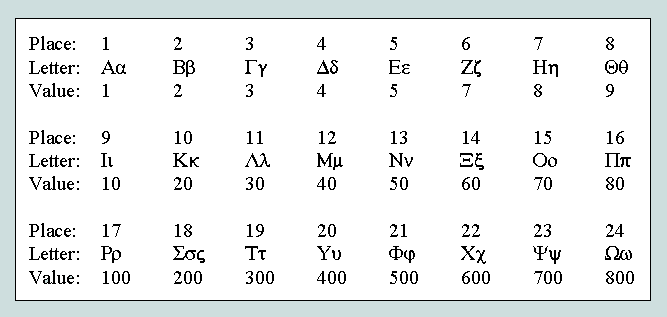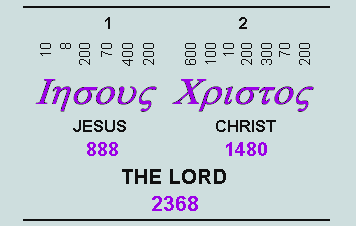
The Greek alphabet is an ordered set of 24 upper/lowercase pairs of characters. The position and numerical value of each letter of each of these pairs is detailed below:

This scheme was introduced circa 600 BC for the purpose of recording numbers on an additive basis, the missing values, 6 and 90, being represented by non-alphabetic symbols. Thus, every string of letters was potentially a number - interpreted by summing the tabular values of the letters.
As a unique example of this procedure, the characteristic values (CVs) of the Lord's Name and Title (as recorded in both Septuagint and New Testament) are evaluated below:

Observe that the letter values appear above, and their respective sums, below.
Further interest is generated by the fact that 888, 1480 and 2368 hold the large factor, 296 (= 8.37), in common; thus, 888 = 3.296, 1480 = 5.296, and 2368 = 8.296.
VJ
2010-04-23